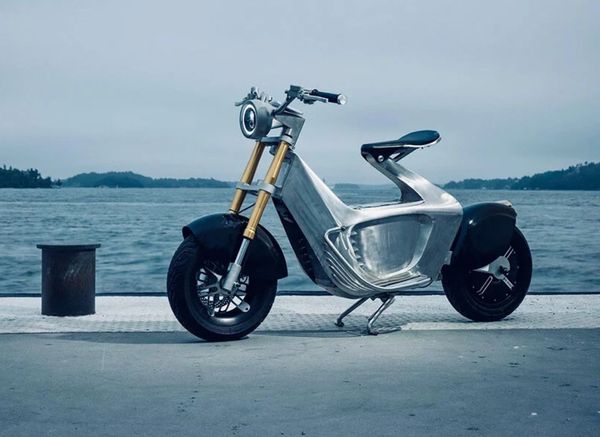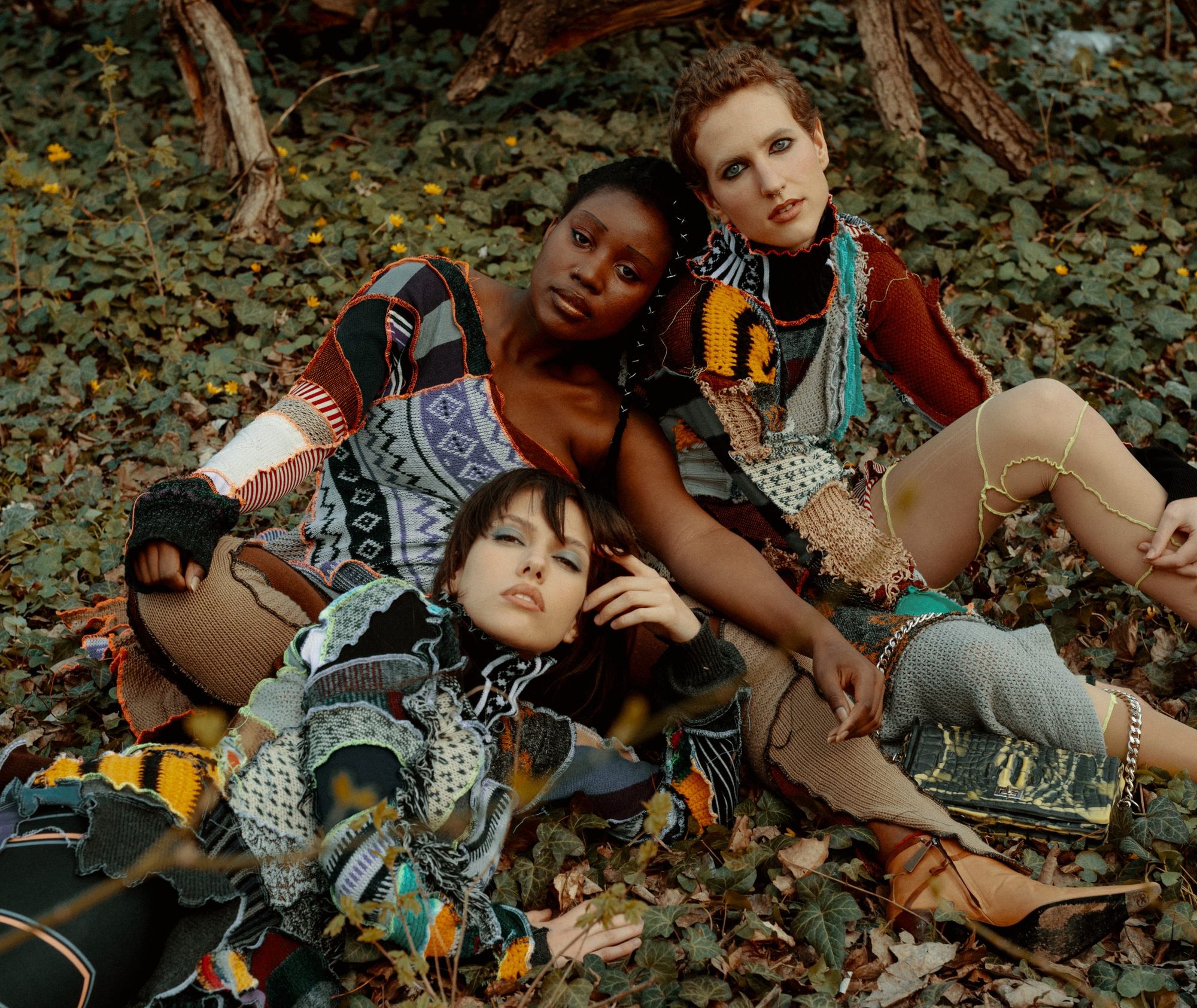When we talk about sustainable fashion, the first thing that comes to mind for many people is minimalist, even boring-looking basics. The BORBALA brand completely defies stereotypes: anything but conformist, full of bright color, material and shape variations, exciting DIY techniques. Under the brand’s aegis, even the Lidl bag, the football scarf and the plastic cap can take on a new meaning. This is how self-expression and a reduced ecological footprint go hand in hand! Designer Borbála Ferencz told us about the brand and how she sees the questions of sustainable fashion.
Borbála Ferencz grew up in post-communist Romania, where she started creating early on from what was most readily available to her: scrap that others had already deemed unnecessary. She then began to create value from these through upcycling and DIY techniques. The young designer (now a young mother), who graduated from Cluj Napoca, has introduced her brand to the world’s most diverse places while retaining its artisanal and personal character to this day.
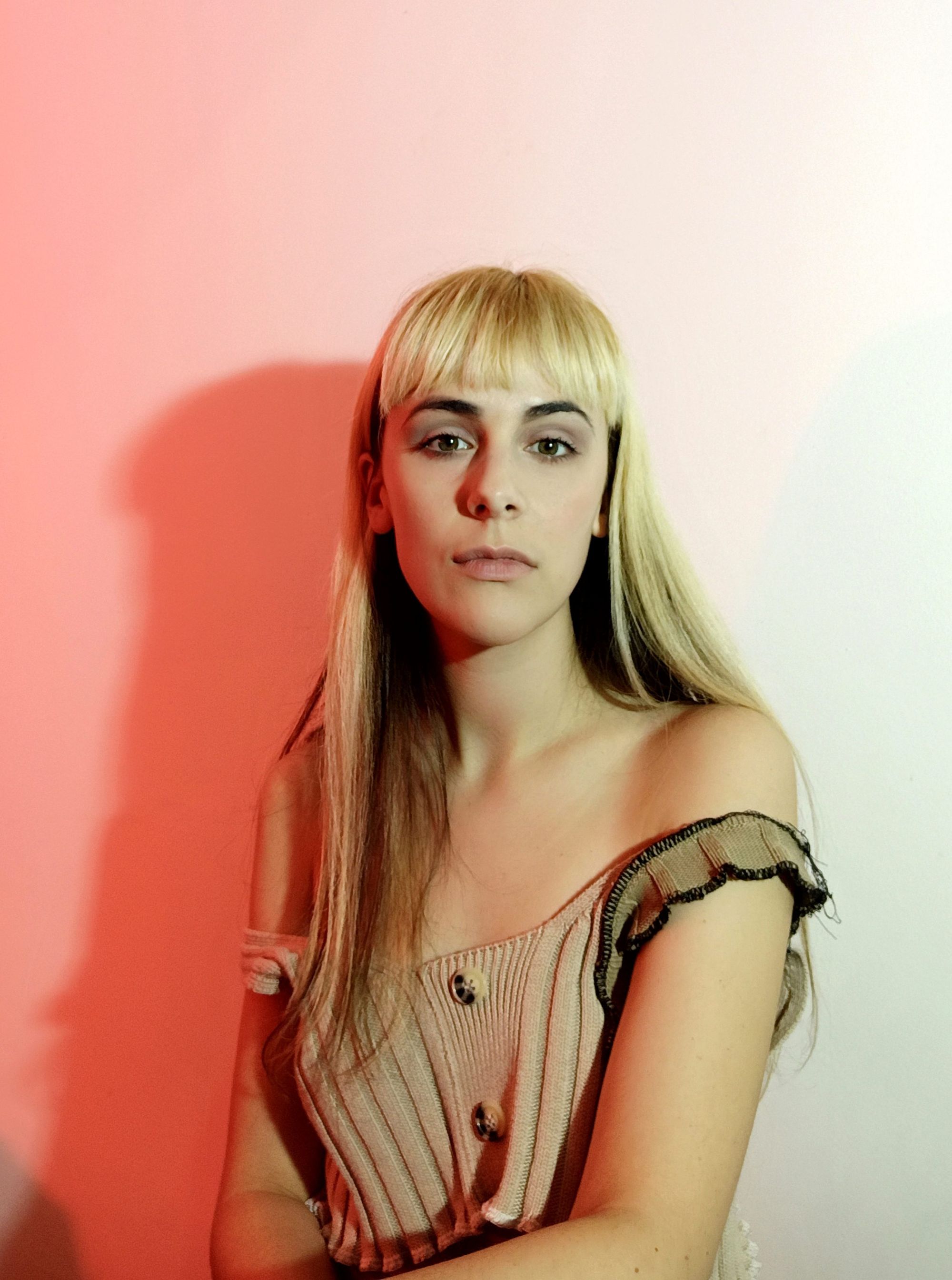
“My taste has always been colorful and a bit chaotic. Patchwork as a technique, which means I recycle old clothes and scraps of fabric, is perfectly suited to my style and also to my desire for sustainability. I don’t have several meters long rolls of fabric to cut out beautiful minimal dresses from. I put everything together from small pieces. The sky is the limit, and I like to let my imagination run wild, sewing all kinds of colors and textures together,” says Bori.
“Sustainability can be interpreted in many different ways, and often these definitions are not well defined. That is why many people abuse it. In the meantime, even though sustainability is on the tap all the time, it is alarming that people are still buying an awful lot of products of questionable quality, made in who knows where and under what conditions, which are even cheaper than fast fashion stores. So, my sustainability focus is to use as few new materials as possible, while at the same time, a personal, artisanal approach is important to me. I am trying to open up more and more to hand techniques so that the sewing machine is no longer a constraint and I can even save on electricity. Therefore, my clothes are also characterized by a kind of conscious incompleteness and imperfection. And in most cases, I still make all my products myself,” shares her thoughts on sustainability.
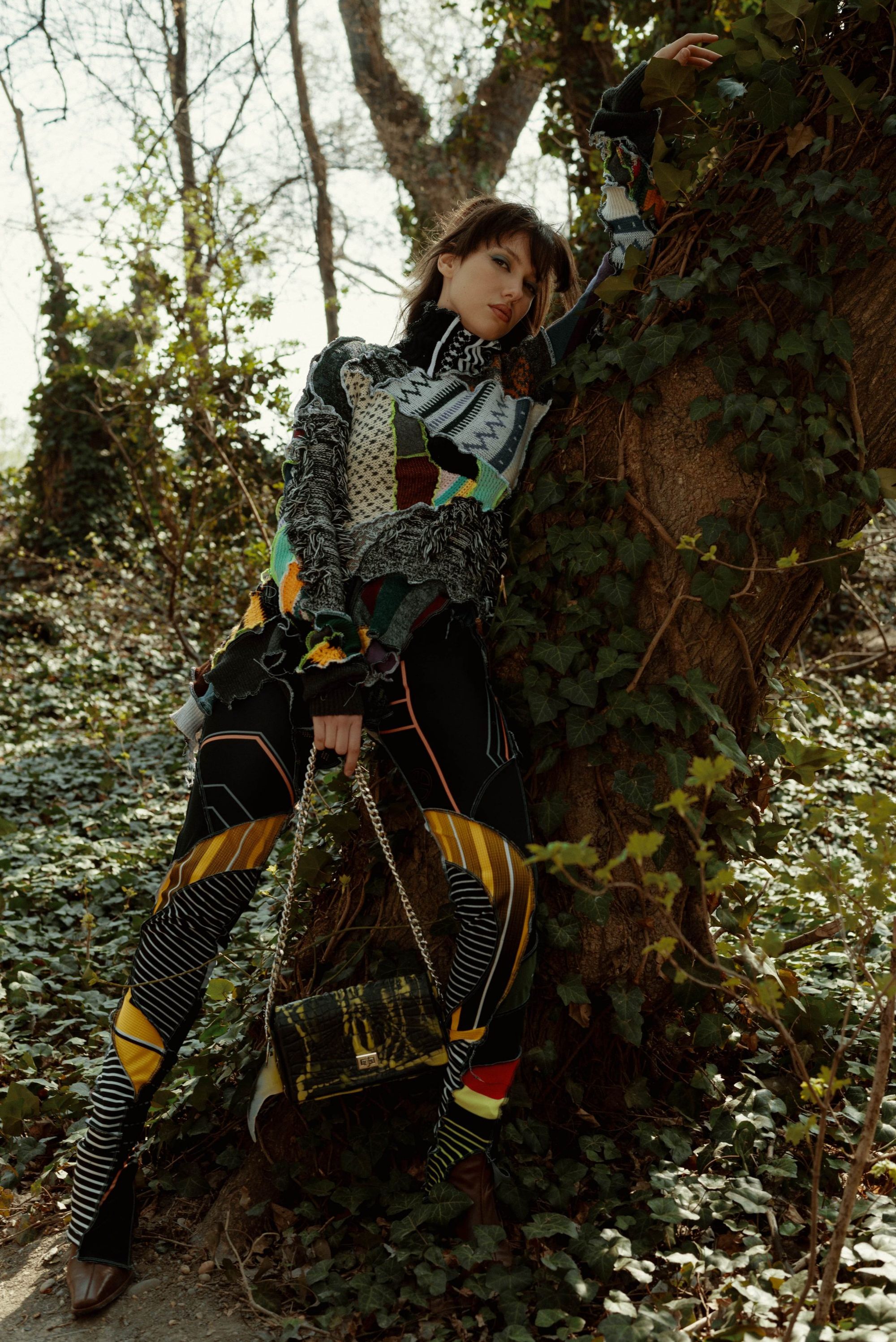
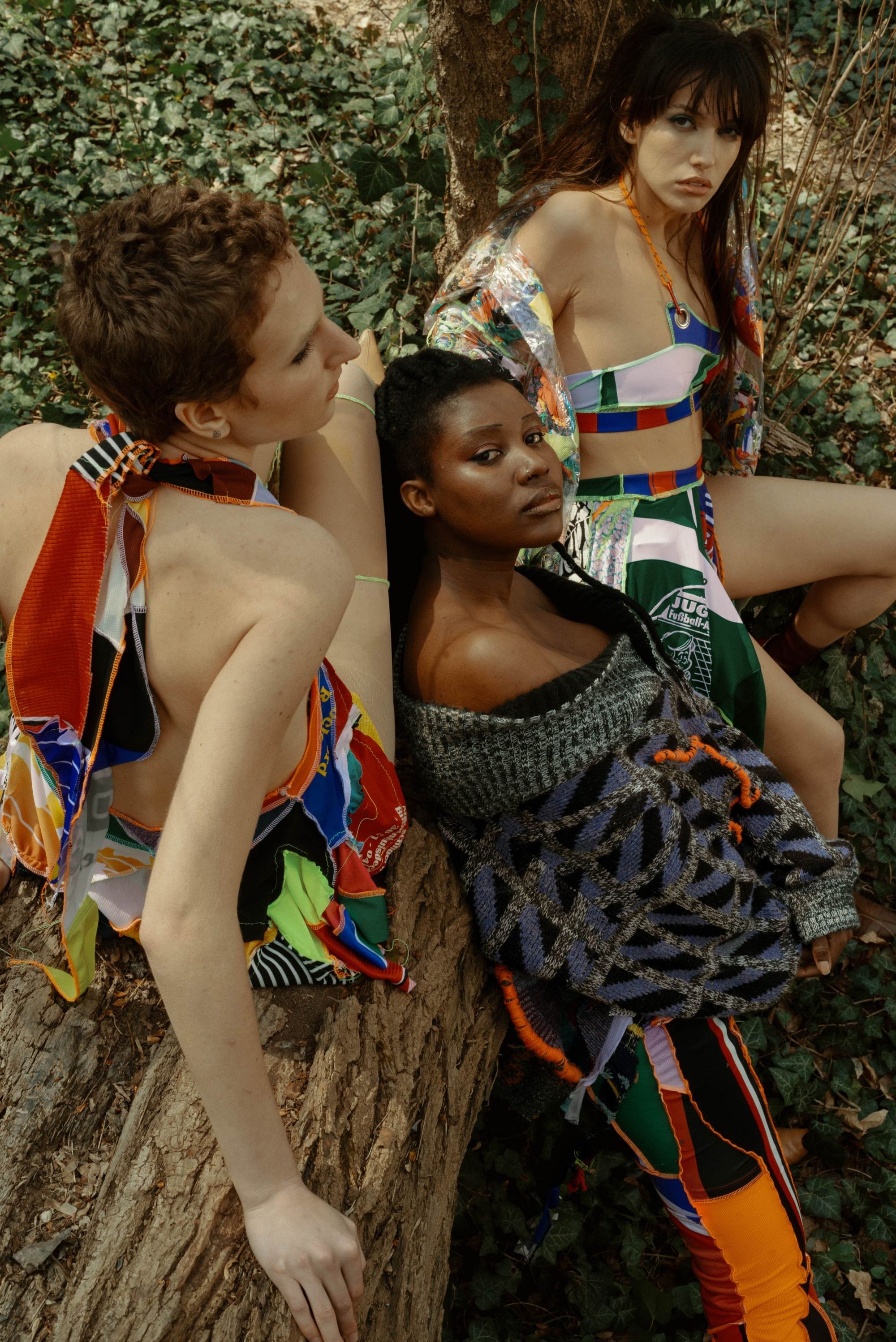
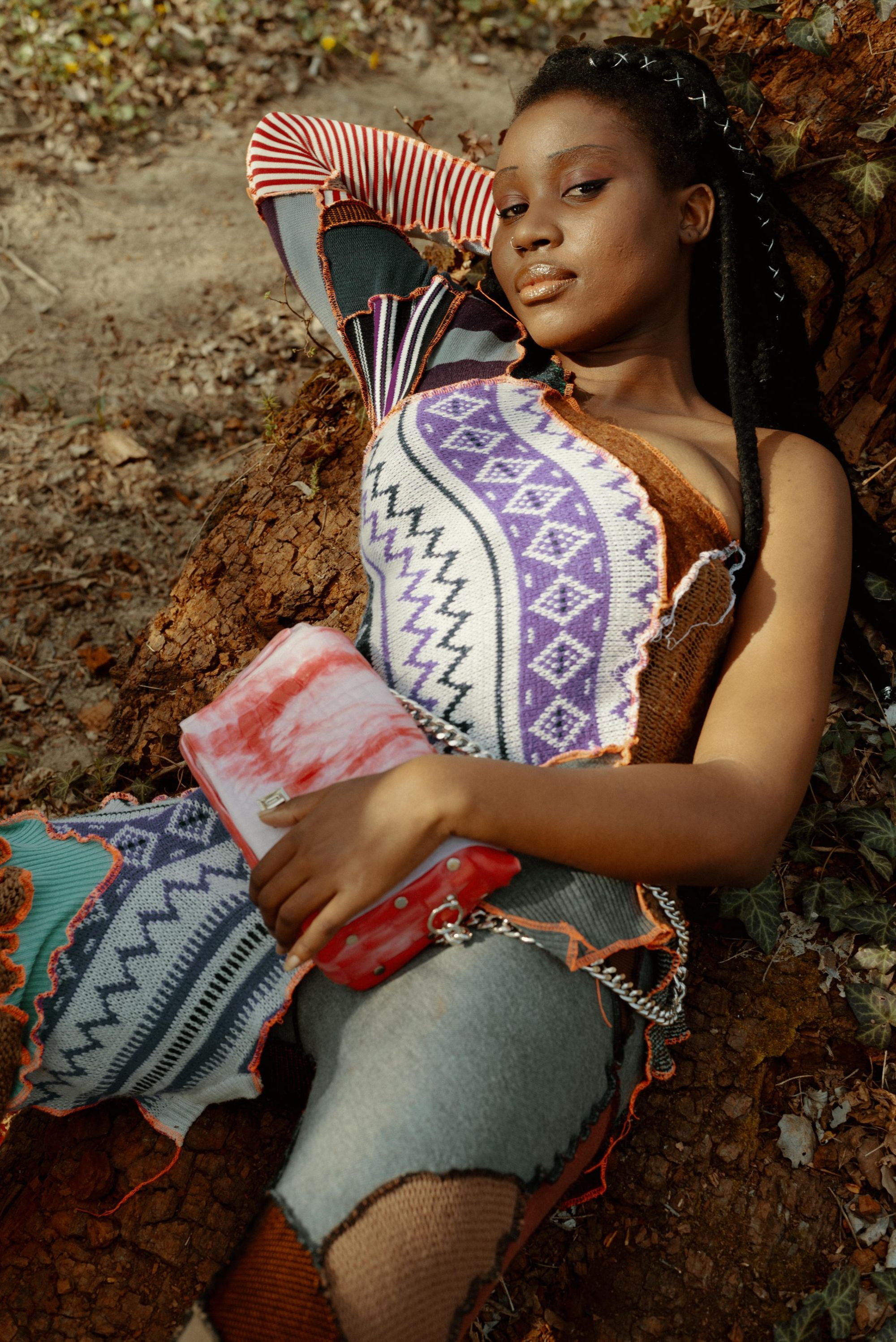
It is also vital for Bori to involve her customers in the creation process. For example, the webshop has a feature to help you create your own patchwork top. “It’s a more time-consuming method: sometimes I can find the right pieces of material at home, but often I go to the store for each order to look for the colors and textures the customer has requested. This makes for more humane and often more lovable pieces. I believe that we are really more attached to something that involves a bit of our own work. And apart from buying ready-made products, I’d like to encourage people to try these relatively simple techniques that can be done at home. For example, when talking about plastic recycling, it’s not just the complex things that only a giant company can do. For example, I make my jewelry by hand, using everyday tools: an oven, an iron, a flattener. Related to this, I also organize plastic recycling workshops with my partner at festivals, and I have downloadable patterns on my website. In the future, I definitely want to strengthen this knowledge-sharing side of the brand even more,” adds Bori.
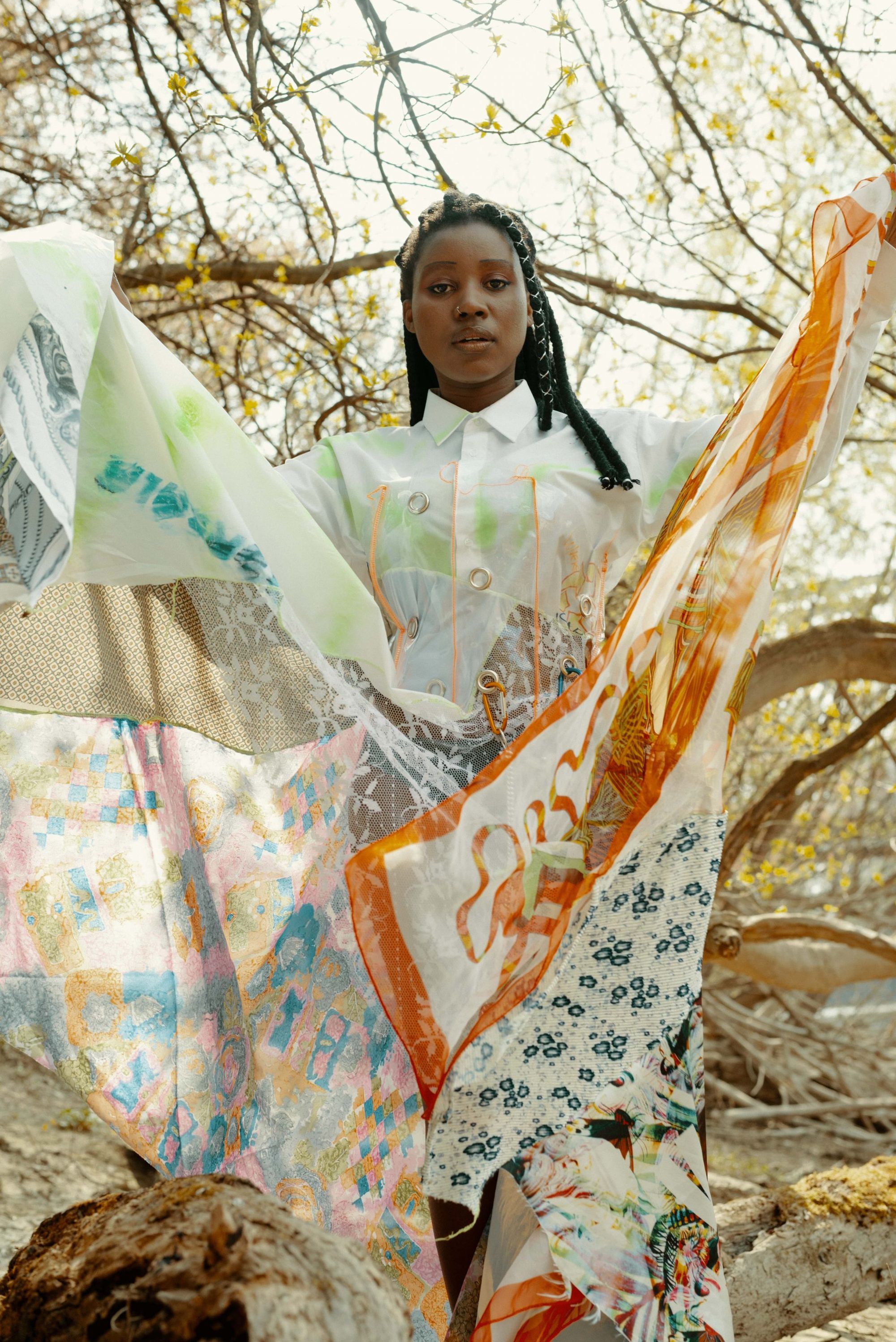
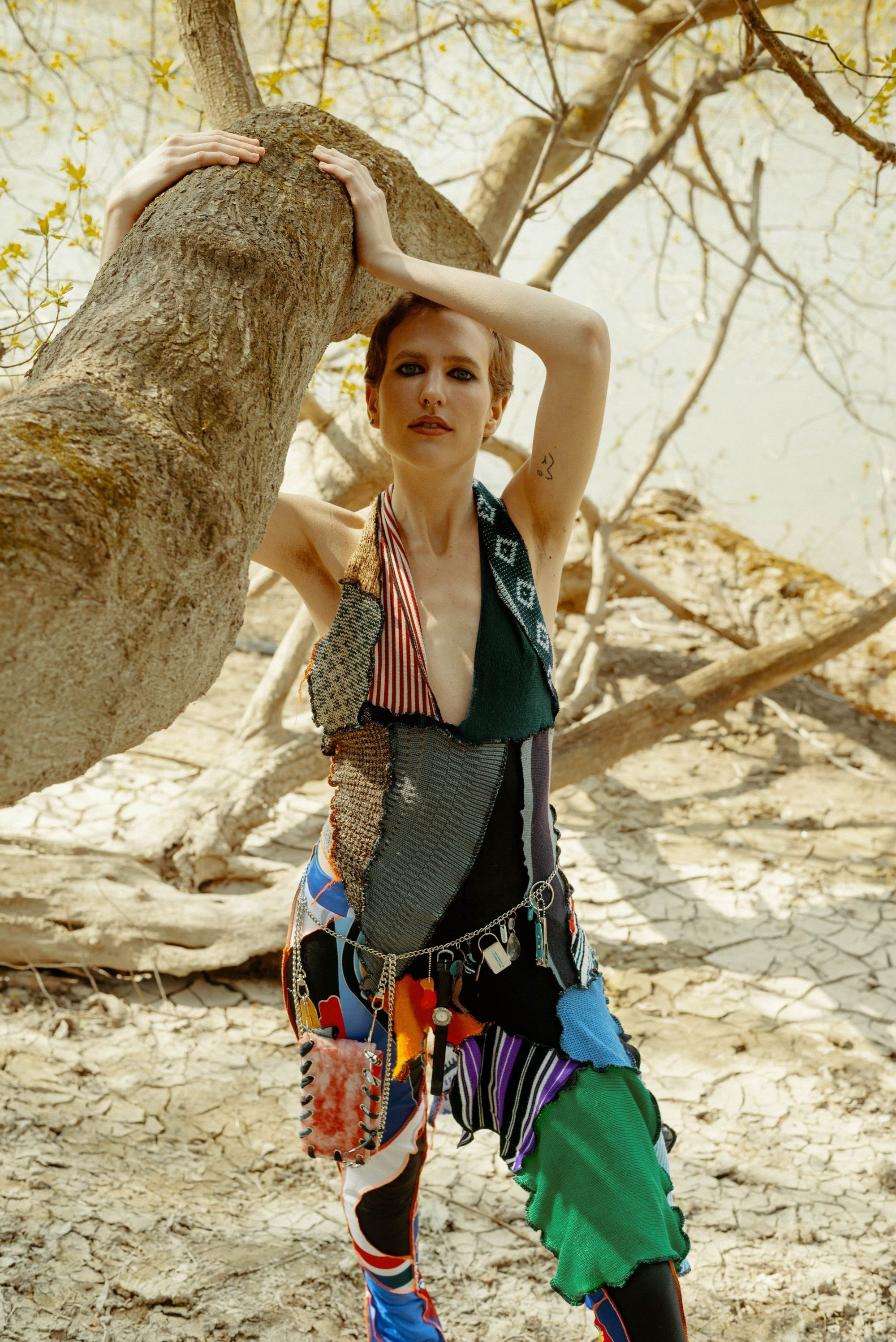
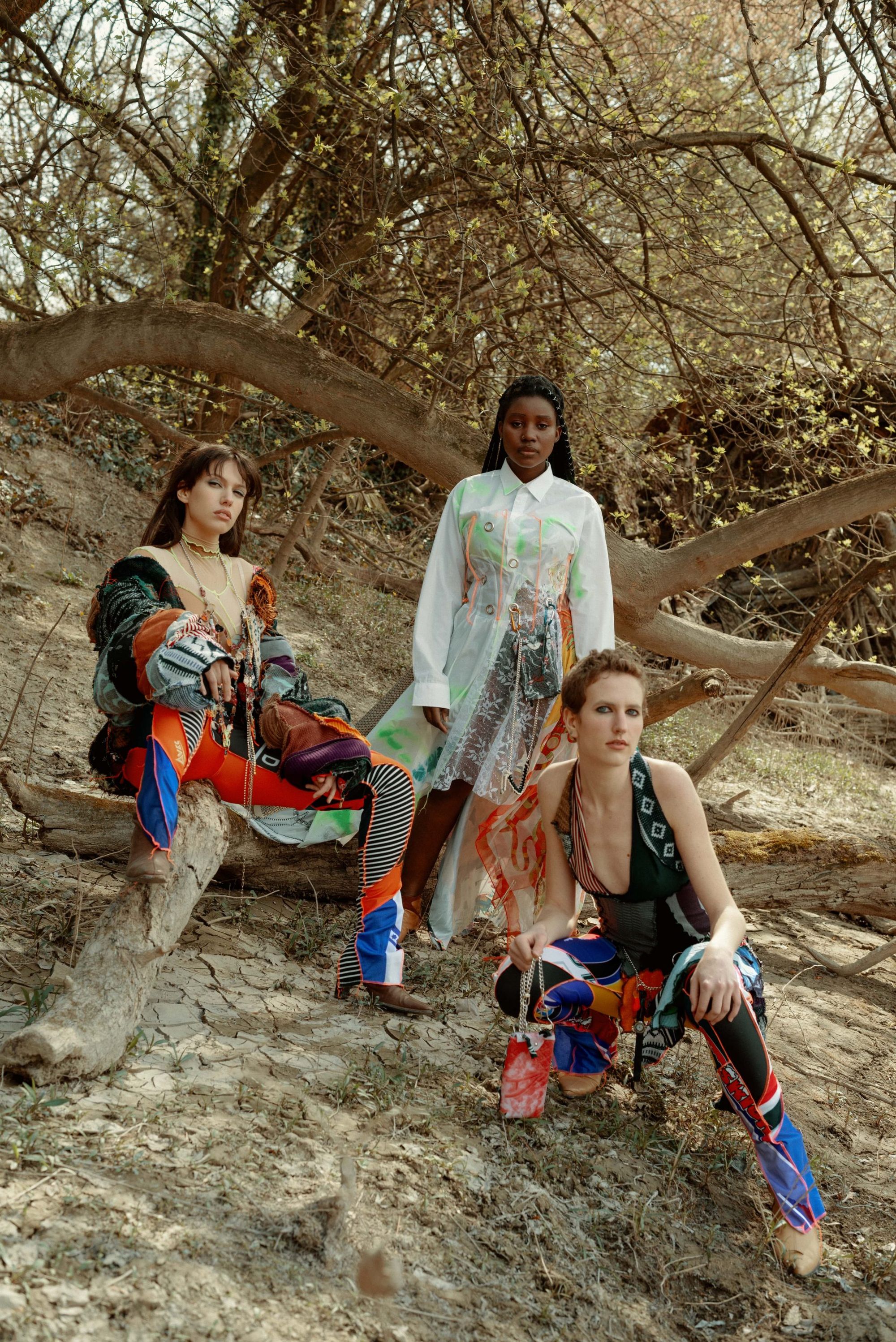
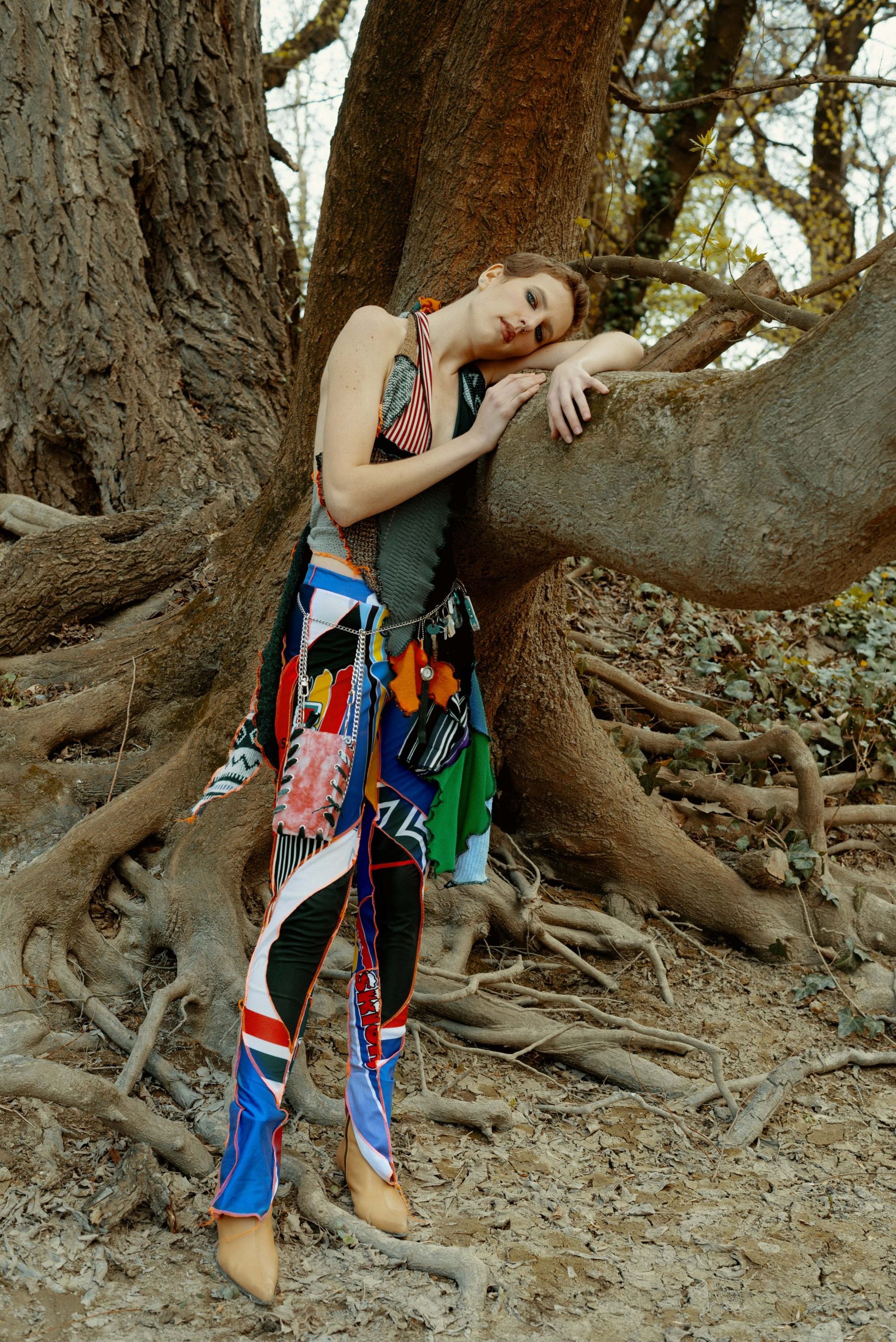
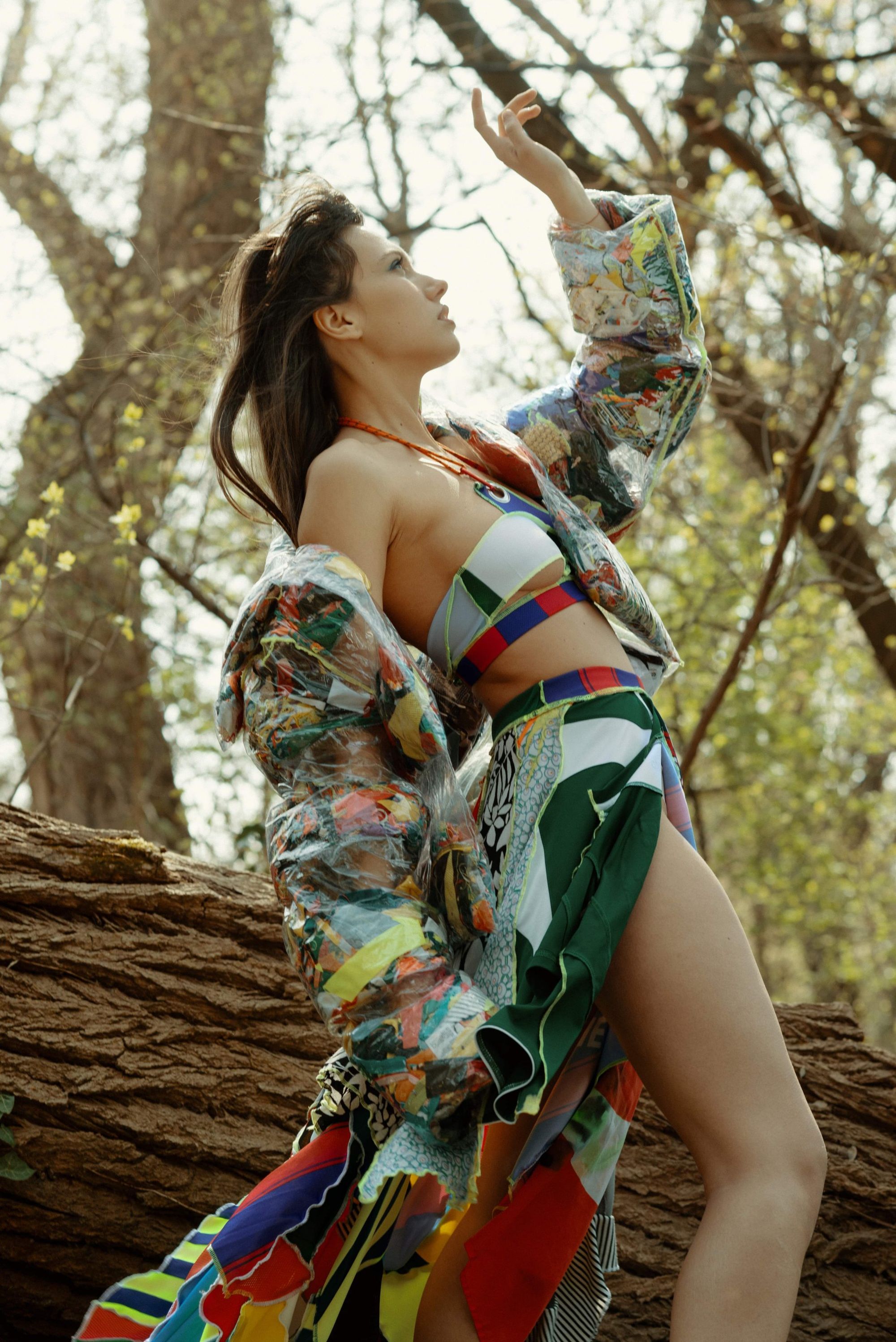
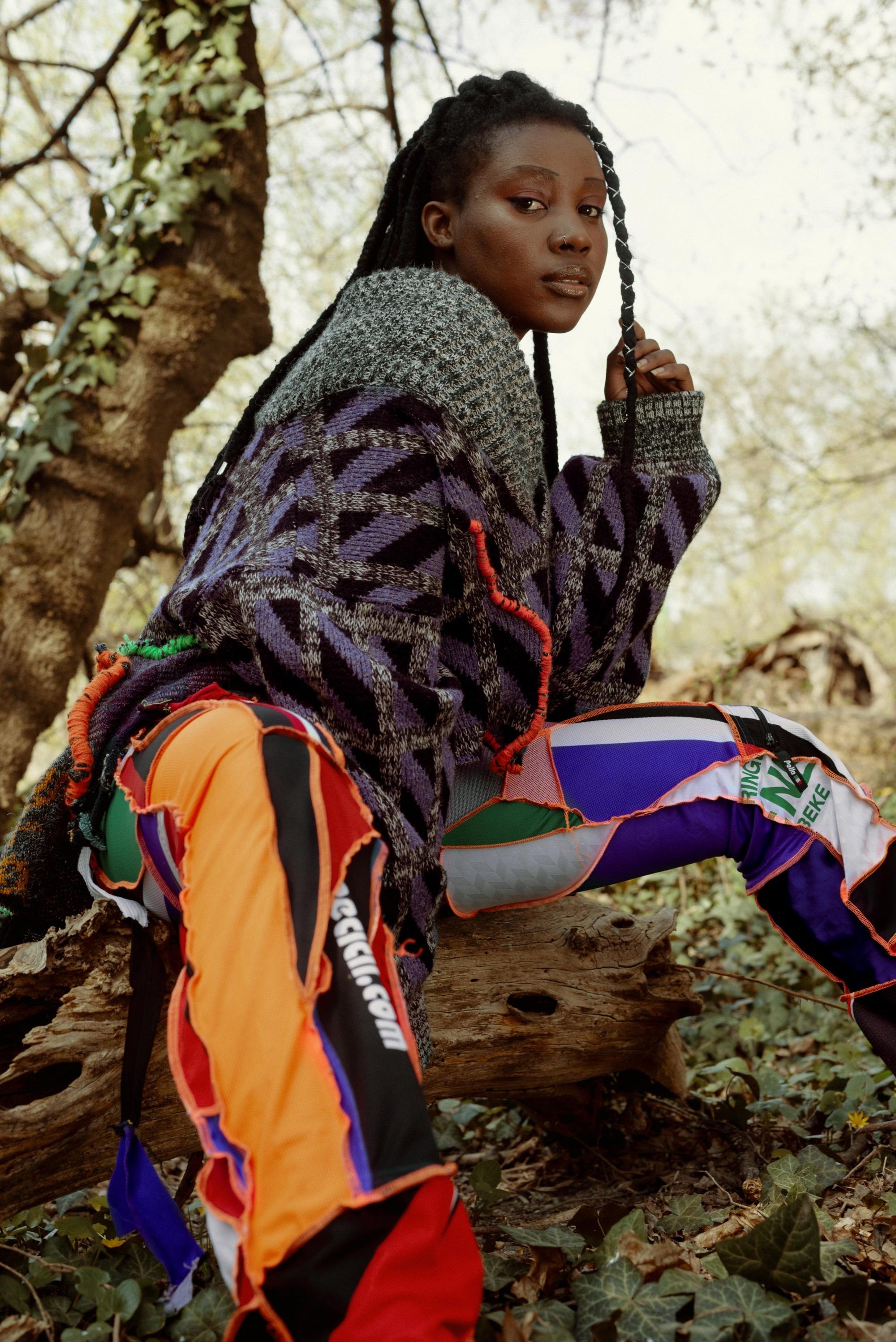
BORBALA | Web | Facebook | Instagram
Photos: Réka Liziczai
Bags: Ordained Hardware
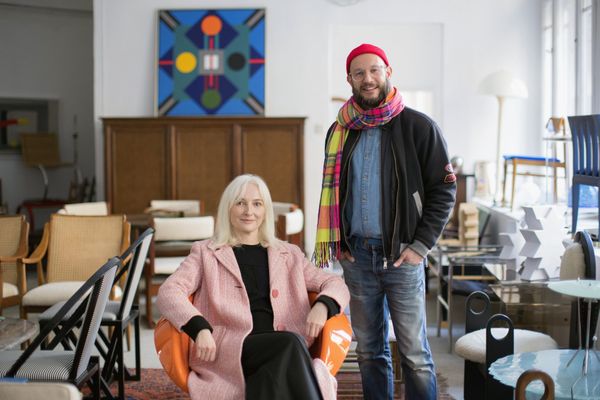
Artist duo | Kati Vörös and Péter Laza
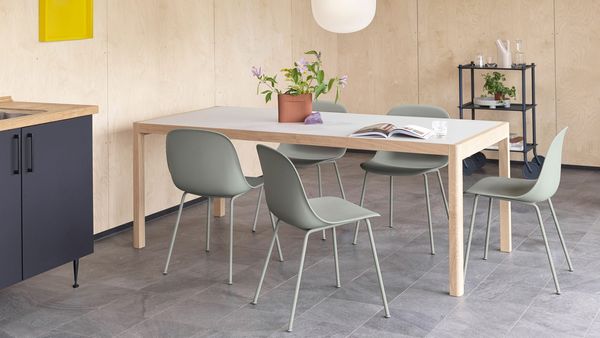
Muuto introduces the sustainable version of the iconic Fiber Chair
